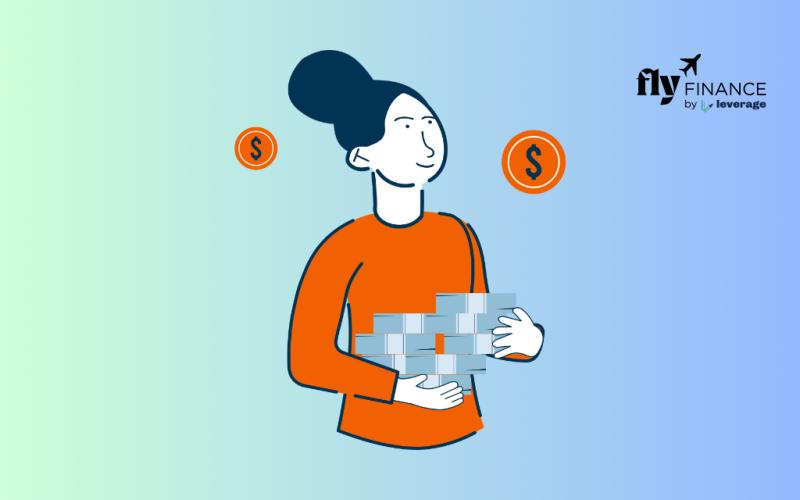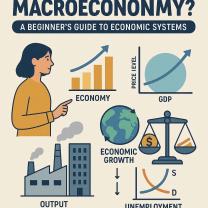What are the best student loans to apply for?
The "best" student loans can vary based on individual circumstances, financial needs, and eligibility criteria. However, there are several types of student loans that are commonly considered among the best options due to favorable terms, borrower protections, and flexibility. Here are some of the best student loans to consider:
Federal Direct Subsidized and Unsubsidized Loans:
- These loans are offered by the U.S. Department of Education. Federal Direct Subsidized Loans are based on financial need, and the government pays the interest while you're in school and during certain deferment periods. Federal Direct Unsubsidized Loans are available to both undergraduate and graduate students, but interest accrues during all periods. Federal loans come with fixed interest rates and various repayment options.
Federal Perkins Loans:
- Perkins Loans are low-interest federal student loans for undergraduate and graduate students with exceptional financial need. These loans are administered by schools and have favorable terms. However, the Perkins Loan program has been discontinued, and new loans are no longer being made. Existing Perkins Loan borrowers may still be eligible for certain benefits.
Federal Direct PLUS Loans:
- Federal Direct PLUS Loans are available to parents of dependent undergraduate students and graduate or professional students. They can cover the cost of education beyond other financial aid. PLUS Loans have fixed interest rates and flexible repayment options.
Private Student Loans from Reputable Lenders:
- Private student loans can be obtained from banks, credit unions, and online lenders. It's important to shop around and compare offers from reputable lenders. Look for loans with competitive interest rates, flexible repayment terms, and borrower-friendly features. Common private lenders include Sallie Mae, Discover, and Wells Fargo.
State-Sponsored Student Loans:
- Some states offer their own student loan programs with competitive interest rates and borrower benefits. These loans may have specific eligibility criteria, so check with your state's higher education agency for information on available state-sponsored student loans.
Refinancing and Consolidation Loans:
- After graduation, consider refinancing or consolidating your student loans to potentially secure lower interest rates. Private lenders and financial institutions offer student loan refinancing options. Be aware that refinancing federal loans with a private lender may result in the loss of federal benefits, so carefully weigh the pros and cons.
Income-Driven Repayment Plans:
- While not traditional loans, income-driven repayment plans are federal repayment options that adjust monthly payments based on your income and family size. These plans include Income-Based Repayment (IBR), Pay As You Earn (PAYE), and Revised Pay As You Earn (REPAYE). After 20 or 25 years of qualifying payments, any remaining balance may be forgiven.
Before applying for any student loan, it's crucial to carefully review the terms and conditions, including interest rates, repayment options, and borrower protections. Federal student loans often come with more favorable terms and protections, so it's generally advisable to exhaust federal loan options before considering private loans. Additionally, consider seeking advice from a financial aid counselor to ensure you make informed choices based on your individual financial situation and goals.
Charting Your Course: Mastering the Maze of Student Loans
Student loans, though sometimes necessary, can feel like a confusing labyrinth. But fear not, future scholars! This guide will equip you with the knowledge to navigate the maze and choose the best loan options for your journey:
1. Navigating Student Loans:
- Federal vs. Private Loans: Understand the key differences. Federal loans offer lower interest rates, flexible repayment options, and government protections, while private loans might have higher rates but potentially offer larger borrowing limits.
- Grants and Scholarships: Exhaust all free aid options first. Apply for grants and scholarships to minimize reliance on loans and reduce your overall debt burden.
- Needs-Based vs. Merit-Based Aid: Identify your eligibility for needs-based aid based on your financial situation, and research scholarships based on academic merit or specific fields of study.
- Borrow Only What You Need: Be realistic about your future income and avoid excessive borrowing. Only cover essential education costs and living expenses.
- Compare Loan Terms: Don't just focus on interest rates. Look at repayment options, origination fees, prepayment penalties, and overall loan terms before making a decision.
2. Making Informed Choices:
- Credit Score and Cosigners: Understand how your credit score and having a cosigner with good credit can impact your eligibility and interest rates.
- Future Career Path: Consider your likely salary in your chosen field when determining how much debt you can realistically manage.
- Repayment Plans: Research different repayment plans available for federal loans, like Income-Driven Repayment, and choose one that aligns with your future financial projections.
- Loan Forgiveness Programs: Explore potential loan forgiveness programs in your field, like Public Service Loan Forgiveness, to see if they might offer debt relief in the future.
- Avoid Scams and Predatory Lenders: Be wary of predatory lenders with hidden fees or unfair terms. Stick with reputable lenders and thoroughly review loan agreements before signing.
3. Understanding Different Programs:
- Federal Direct Loans: These fixed-rate loans directly from the government offer the best overall benefits, including flexible repayment options and borrower protections.
- Federal Subsidized Loans: These need-based loans don't accrue interest while you're in school, significantly reducing your total debt.
- Federal Unsubsidized Loans: Available to all students, these loans accrue interest even during in-school periods, adding to your debt.
- Federal PLUS Loans: Parents can borrow loans for dependent students at a higher fixed interest rate than Direct Loans.
- Private Loans: Explore these only after exhausting federal options. They can offer larger borrowing limits but often have higher interest rates and fewer borrower protections.
Remember, choosing the right student loans is a crucial decision that impacts your financial future. Be proactive, informed, and don't hesitate to seek help from financial advisors or school counselors to navigate the complexities of student loans. With careful planning and smart choices, you can chart a course towards a successful education and a manageable debt load. So, equip yourself with knowledge, prioritize responsible borrowing, and conquer the maze of student loans with confidence!












